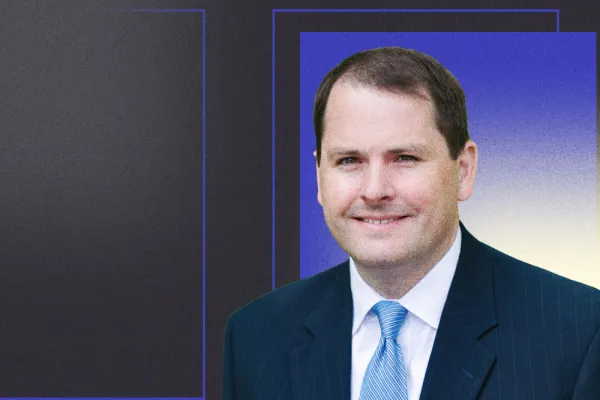Amid a bevy of institutions posting high-flying returns for the 2021 fiscal year, one stands out among the rest, particularly in garnering headlines: Washington University in St. Louis.
But a rare look under the hood of Wash U’s returns illustrates what was happening in the markets over the past year and the challenges facing CIOs, including where to place bets.
The Washington University Investment Management Company had been on the rise for a few years already, but CIO Scott Wilson led the organization as it skyrocketed 65 percent to $15.3 billion for the fiscal year ending June 30.
The numbers are even more impressive when broken down by asset class. The private investment portfolio, which makes up 40 percent of the endowment’s assets, was up 82 percent, while the public equities portfolio was up 72 percent for the year, Wilson said.
Those returns, reported on September 20, were seeded by decisions made years prior, according to Wilson, who spoke with Institutional Investor.
“First off a huge portion of it is just beta,” Wilson said, referring to the returns that came exclusively from the rise of markets overall.
But the organization’s decision to concentrate on emerging markets and co-invest alongside some of its managers paid off.
WUIMC’s executive chairman and former interim CIO Eric Upin likes to call this model Endowment 2.0. That means the endowment focused more on its best ideas or high conviction investments, co-invested alongside managers in both public and private markets, and pushed for deeper involvement from all its team members. The board members aren’t easy on Wilson: They gave the investment team a benchmark of 70 percent stocks, 30 percent fixed income to beat.
“We are comfortable with a CIO who has a concentrated, co-invested portfolio,” Upin told II.
When Wilson joined the organization in December 2017, the portfolio had no co-investments. Now, they make up 20 percent of WUIMC’s investments, which are made alongside both public and private investment managers. According to Wilson, his team spends roughly 90 percent of its time on these deals.
Wilson’s team is also focused on investing in emerging markets. Prior to the pandemic, WUIMC’s top five team members spent a significant chunk of their time flying to far-flung locales in the hopes of finding strong investment themes outside of the U.S. (The top five spent 400,000 miles each traveling in 2018 and 2019 to source investments.)
“In general, we like to go where our peers aren’t,” Wilson said. “We have a lot of exposure in frontier and emerging markets, most of which is bottom-up driven.”
When the COVID-19 pandemic began in March 2020, WUIMC had already done the legwork necessary to deploy capital, despite being unable to travel.
The endowment has also allocated capital to cryptocurrency. WUIMC made a “super tiny investment” back in 2014 and has since added to it. Wilson is focused on crypto companies like lenders or blockchain-related gaming firms, rather than those that focus on one specific currency.
Moving forward, Wilson said his team is worried about valuations in both public and private equity, particularly in technology and late-stage growth companies. “We’re trying to take profits where we can in that space,” he said.
“Our other focus has been rebalancing the portfolio,” Wilson added. “With the huge run-up in equities both public and private, we’ve gotten out beyond our risk profile.” Amid the March and April market drawdown, Wilson said WUIMC rebalanced about five percent of its portfolio and would have moved more capital around, but the markets roared back quickly.
For now, WUIMC is selling futures against its book to hedge the portfolio while waiting for certain liquidity events that will allow it to rebalance, Wilson said.
Although assets under management have increased significantly, Wilson doesn’t plan to add specialists from outside to his team. He said he prefers promoting staff internally when he can, growing them from interns and associates to higher ranking professionals. That will be the case for managing director Michael Stohler’s replacement. Stohler left the organization in late July for the Wisconsin Foundation and Alumni Association, where he was named CIO.
“We’ll just continue to do what we’re doing,” Wilson said. “Most of it is just hard work and basic blocking and tackling... We’re still finding interesting things to do, but we’re also passing on so many opportunities.”







